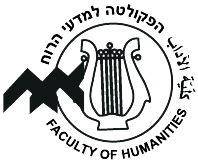The curriculum includes classwork, field trips, field campuses and individual field research. Students will spend a total of 13 days on field campuses, including three days each in the Negev and Galilee, a concentrated field campus of five days in the Mount Carmel and two single day long field trips. During the field campuses, workshops and seminars, students will each focus on a specific topic within the curriculum. Exceptional students may want to take advantage of the International School’s Hebrew and/or Arabic courses, although it is not required and is not included in the tuition. Intensive language courses are offered during the summer (July and August) and throughout the course of the semester.
Course Descriptions
The program offers several core courses in prehistory. Students may take other relevant courses in other departments pending on the approval of the head of the MA program. The curriculum and courses may change from year to year.
Seminars:
Ecological and Evolutionary Approaches to the Prehistoric Record (4 credits)
Selected Topics in Prehistory (4 credits)
This seminar is devoted to one prehistoric research topic or period. Topics vary from year to year. Each student will write a seminar paper, either on a theoretical topic or on finds analyzed by him/herself (with individual supervision, if needed).
Campus:
Galilee Field Campus (2 credits)
Students will spend three days in the Galilee studying and interpreting prehistoric sites in several ecological settings representing different prehistoric periods. Specific attention will be given to issues of reconstructing past environments and human adaptations. Aspects of cultural heritage, preservation and conservation will be discussed.
Mount Carmel Field Campus (4 credits)
Students will spend five days studying and interpreting prehistoric sites in several ecological settings representing different prehistoric periods. Specific attention will be given to issues of reconstructing past environments and human adaptations. Aspects of cultural heritage, preservation and conservation will be discussed. Students will participate in activities that include excavation and/or survey work, sorting and documentation of finds, analysis of lithic and faunal remains and other activities related to archaeological research.
Negev Field Campus (2 credits)
Students will spend three days in the Negev desert studying and interpreting prehistoric sites in several ecological settings, representing different prehistoric periods. Specific attention will be given to issues of reconstructing past arid environments and human adaptations. Aspects of cultural heritage, preservation and conservation will be discussed.
Courses:
Near Eastern Prehistory (2 credits)
This course is an introduction to the prehistoric cultures of the Near East. It will provide an outline of research history and the major periods and cultures, from the Lower Paleolithic through the Pottery Neolithic. Major sites and typical finds will be discussed.
Archaeozoology (2 credits)
This course provides students with the theoretical background and practical expertise needed for the analysis of animal remains from archaeological sites. A wide range of anthropological and ecological approaches commonly applied in archaeozoological research will be discussed, including hunter-gatherer subsistence, animal domestication and early urban economies.
Introduction to Lithic Technology (2 credits)
This course is an overarching survey of flint technologies that prevailed in the southern Levant. The lesson the archaeological record, from the Lower Paleolithic to the Chalcolithic period, with special attention to indicative types and technologies that characterize past entities. Students will learn to identify the tools and technologies through observing the faculty's archaeological collection and will be part of a stimulating discussion revolving around the various aspects associated with prehistoric flint industries, including topics such as flint mining and procurement strategies, ethno-archaeology and more.
Experimental archaeology and use-wear analysis (2 credits)
This course encompasses both theoretical and practical training in the field of experimental archaeology and use-wear analysis. It takes the students out of the classroom and provides analytical tools that can be used for (re)constructing past activities and technologies. Students will design and participate in experiments, using tools that they created. Student will then learn the method of use-wear analysis using the microscopes and software at the Use-Wear Analysis Laboratory, Zinman Institute of archaeology.

